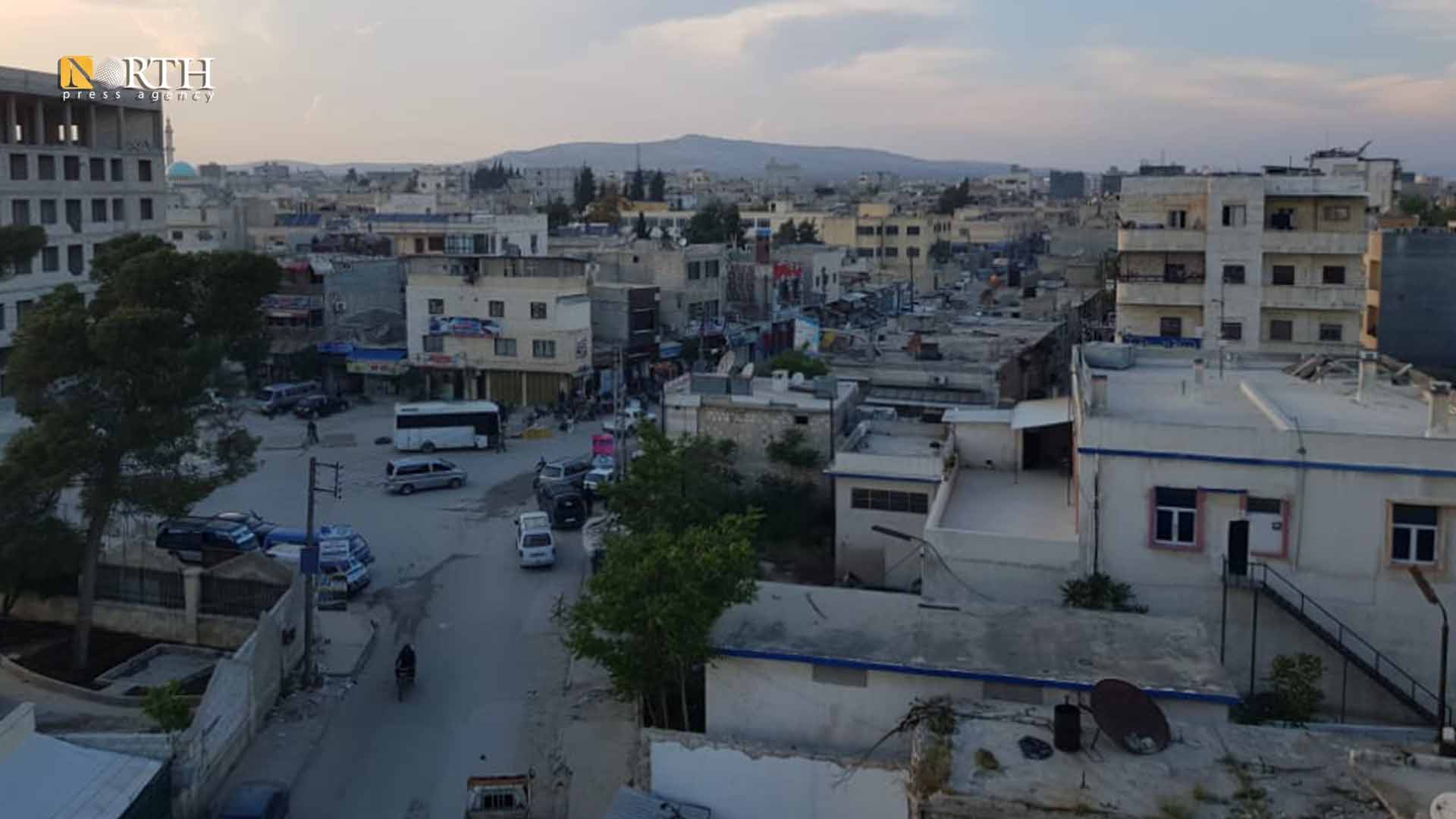ALEPPO, Syria (North Press) – Residents and militants in areas held by Turkish-backed armed Syrian factions in the northern countryside of Aleppo, north Syria, question the usefulness of establishing new formations among the opposition military faction’s ranks, and believe that announcing new names does not contribute to the improvement of their behavior.
Residents believe that uniting those factions under new names is useless in light of the increasing disputes between the factions themselves and even within the new formations.
Same harassments
Conglomerates and amalgamations among the factions that took place periodically in the region are mere words and useless, Salim al-Siba’i (a pseudonym), an IDP in Azaz city, told North Press.
“People are tired of those new names for the existing formations, who make no improvements on the ground, in order to change people’s attitudes towards them,” al-Siba’I said.
On August 23, as a result of disputes over representation, the Hamza Division, Sultan Suleyman Shah Division, and Liwa Suquour al-Shamal left the Azm Unified Command Room a month after joining it.
On September 9, five factions of Turkish-backed Syrian National Army merged a new military body under the name of the Syrian Liberation Front.
The new formation, which was announced through an official statement, consists of the Hamza Division, Mu’tasim Division and Sultan Suleyman Shah Division, as well as the 20th Division and Liwa Suquour al-Shamal.
The Syrian Liberation Front assigned Mutasim Abbas, head of Mu’tasim Division, as general commander of the newly formed military body and Saif Boulad, head of Hamza Division, as his deputy, while other militants affiliated with the front were distributed in the areas held by them with Turkish support in the countryside of Aleppo, Hasakah, and Raqqa.
According to the new statement, the merger aims to create a “unified and effective command that transcends the limits of coordination and operates under the command of the Syrian National Army.”
Local and international human rights authorities accuse the factions included in the new military body of committing broad-scale violations of human rights including kidnapping, torturing, and killing in their areas of control.
The new military formation resulted in only bitterness and restrictions of movement, in addition to increasing arrests in the factions-held areas, according to residents.
The last of these quarrels came when the command of the Syrian Liberation Front threatened Muhammad al-Jassim (Abu Amsha), the leader of the Sultan Suleiman Shah Division also known as al-Amshat, with dismissal from his duties in the new formation if he did not abide by the tasks entrusted to him.
Meanwhile, disputes and doubts between commands of those factions greatly affected the popular base in their areas of control and raised resentment and anger.
Conglomerates is creating a state of chaos “as a result of having them intervening continuously in civil affairs and the minutiae of resident’s lives rather than paying attention to the military field,” said Yaser Shobak (a pseudonym), an IDP in the northern countryside of Hama.
“That the factions fight Syrian regime forces does not give them the right to prevent people from expressing their opinions or silence them regarding the mistakes made by these formations,” he added.
Shobak hopes that the factions end these violations and prevent military officials from intervening in people’s affairs “because these create great chaos, in addition to the current chaos, which civilians are often victims of.”
The best solution is to “merge all those factions under one banner, eliminating all names, and monitor their practices instead of increasing the number of checkpoints and restricting people,” he added.
New names
Most of those factions receive their military and logistical support from Turkey, as they participated in several military operations in Syria’s north alongside the Turkish army, resulting in the seizure of areas including Afrin, Sere Kaniye (Ras al-Ain), and Tel Abyad and displacing more than 600,000 people.
International organizations and residents hold those factions responsible for arrests, kidnapping, murders of indigenous residents, and the implementation of demographic change.
Mafias
When the Syrian National Army was formed in 2017, residents rejoiced at the union, but after a while they lost confidence in it, Khalid Saliba (a pseudonym), a militant in the National Front for Liberation, which is one of the formations of the National Army, told North Press.
“With the passage of time, factions within the Syrian National Army began to form unions among themselves, with operations rooms and commands outside the path and power of the National Army,” he added.
“The Azm Room was formed of factions included in the National Army that committed violations including arrests, kidnappings, and killings, rather than fighting the government forces,” al-Salibi indicated.
“Today, they are only mafias that cause panic to people as a result of their infighting. Additionally, they trade in the name of people,” according to the militant.
“Those factions should take it upon themselves to liberate areas from the regime rather than steal from residents,” he elaborated.

